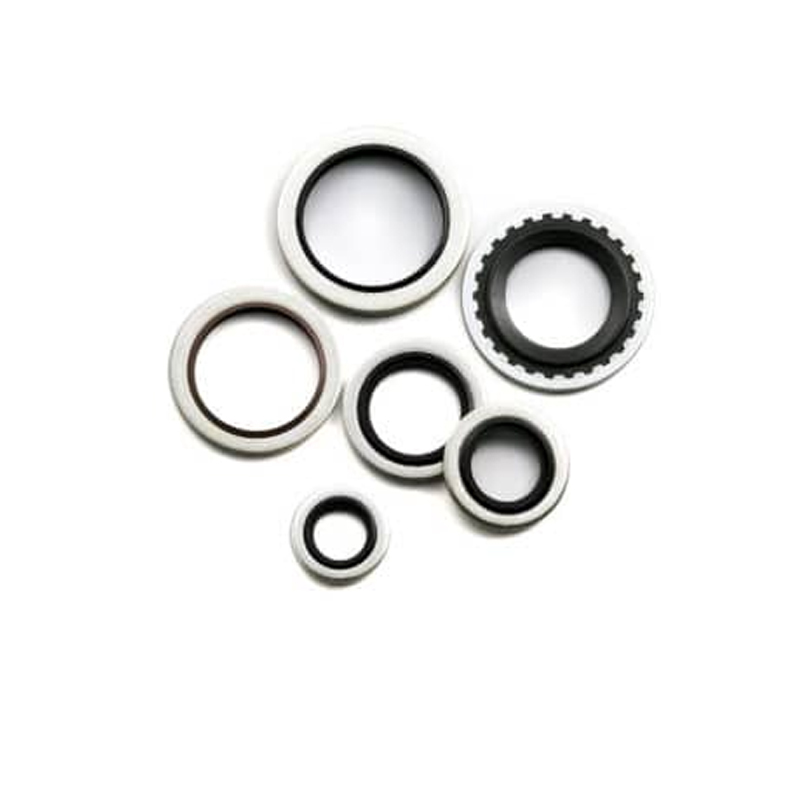Understanding the Importance and Functions of CR Oil Seals in Mechanical Systems
Understanding CR Oil Seals Key Components for Smooth Machinery Operation
Oil seals, often referred to as fluid seals or rotary seals, are critical components in various machinery and industrial applications. Among the different types of oil seals, CR oil seals are particularly noteworthy due to their robust construction and versatility. The designation CR stands for Chloroprene Rubber, a synthetic rubber that is well-regarded for its excellent performance in seals. This article will explore the characteristics, applications, and benefits of CR oil seals.
What are CR Oil Seals?
CR oil seals are designed to prevent the leakage of lubricants and the ingress of dirt, dust, and moisture into critical machinery parts. They serve as barriers between rotating shafts and the static parts of machinery, ensuring that the lubricant remains where it is needed while protecting the internal components from external contaminants. The design of a CR oil seal typically includes a flexible sealing lip that adapts to the shaft's surface, creating a tight seal that minimizes wear and tear.
Characteristics of CR Oil Seals
1. Material Durability The chloroprene rubber used in CR oil seals offers high resilience to various operating conditions. It can withstand a wide range of temperatures, generally from -40°C to +100°C, making it suitable for both cold and hot environments.
2. Chemical Resistance CR has a good balance of resistance to oil, fuel, and various chemical substances, which enhances the longevity of the seal even when exposed to harsh conditions.
3. Good Aging Properties Chloroprene rubber maintains its integrity over time, ensuring a reliable seal throughout the product's life cycle without significant degradation.
4. Mechanical Strength The mechanical properties of CR oil seals provide excellent resistance to wear and tear, reducing the frequency of replacements in machinery.
cr oil seal

Applications of CR Oil Seals
CR oil seals are used across numerous industries, including automotive, aerospace, industrial machinery, and home appliances. In vehicles, these seals are commonly found in engines, transmissions, and differentials, where they help maintain the necessary lubrication for performance and efficiency. In manufacturing industries, CR oil seals protect hydraulic systems and bearings, ensuring smooth operation and prolonging equipment life. Moreover, in consumer products, such as refrigerators and air conditioners, they help maintain energy efficiency by sealing compressor connections.
Benefits of Using CR Oil Seals
1. Enhanced Performance By minimizing lubricant leakage and contamination entry, CR oil seals help maintain optimal performance levels in machinery. This translates to improved efficiency and reduced operational costs.
2. Reduced Maintenance The durability of CR oil seals leads to fewer breakdowns and less frequent replacement needs, thereby reducing maintenance costs and downtime.
3. Versatility CR oil seals can be manufactured in various sizes and specifications, allowing them to be customized for specific applications. This versatility makes them suitable for a wide range of machinery.
4. Cost-Effectiveness Although the initial investment may be higher compared to other types of seals, the long-term savings due to reduced maintenance and replacement needs make CR oil seals a cost-effective choice for many industries.
Conclusion
In conclusion, CR oil seals play a vital role in the smooth operation of various mechanical systems. Their robust construction, chemical resistance, and ability to withstand extreme conditions make them a preferred choice in many applications. As industries continue to evolve and demand more reliable and efficient components, the significance of CR oil seals will undoubtedly grow, ensuring that machinery operates seamlessly and effectively for years to come.
-
Understanding Automotive Oil Seals: Essential Components for Engine and Shaft Protection
News Jul.30,2025
-
The Importance of Heavy Duty Seals in Industrial and Residential Applications
News Jul.30,2025
-
Exploring Industrial Oil Seals: From Felt Oil Seals to TTO and CFW Solutions
News Jul.30,2025
-
Essential Guide to Oil Seals: From Radial to Metal-Cased Seals for Industrial Reliability
News Jul.30,2025
-
Choosing the Right Oil Seals and Gaskets for Industrial and Automotive Applications
News Jul.30,2025
-
Cassette Seals: Durable Sealing Solutions for Harsh Environments
News Jul.30,2025
-
Understanding the Front Main Engine Seal: Purpose, Maintenance, and Installation
News Jul.29,2025
Products categories















